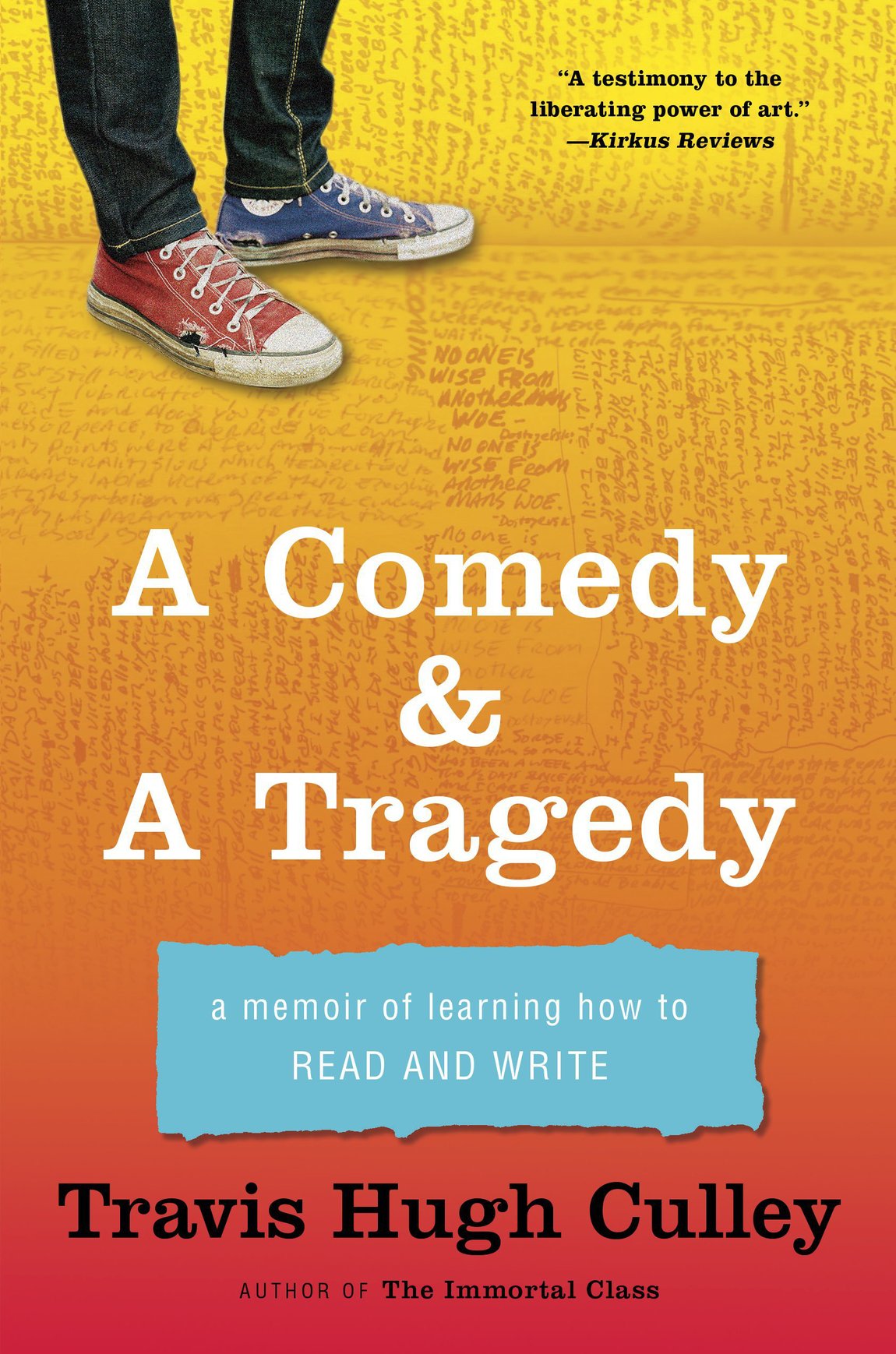
A Comedy & a Tragedy
A Memoir of Learning How to Read and Write
- اطلاعات
- نقد و بررسی
- دیدگاه کاربران
نقد و بررسی

June 15, 2015
Author Culley (The Immortal Class: Bike Messengers and the Cult of Human Power) recounts his difficult childhood in 1980s Miami in this heartfelt memoir. He was the youngest son of an abusive father and an emotionally absent mother. At age eight, Culley is struggling with reading and writing, and his father refers to him as “stupid”; the creative, unusual boy is sent to a religious summer camp where he is sexually abused. Returning with this dark secret, Culley withdraws and makes no further progress in reading. His parents and educators alike fail to address his poor grades, until his sixth-grade music teacher recognizes his latent capabilities and encourages him to apply to an art school for gifted students. There, Culley begins to read and is eventually admitted to high school at the New World School of the Arts, where he blossoms and learns the value of literacy and its importance in telling and validating one’s story. Though the memoir reveals the torment of a troubled and illiterate childhood, Culley eventually begins to probe and heal the wounds of his past through journal writing. This tale of struggle, survival, and triumph addresses the inner lives of children and the grave responsibility of adults to ensure that their voices are heard. Readers will readily warm to the story of a bright, illiterate boy who is destined to become a lauded writer. Agent: John Ware, John Ware Literary.

May 15, 2015
The story of how writing became a means of healing. Culley (The Immortal Class: Bike Messengers and the Cult of Human Power, 2001) recounts his harrowing youth in a disquieting and sometimes self-serving memoir. His father beat him, his older brother bullied him, and a minister sexually abused him, an experience that shattered him. After the abuse, he became "a boy with secrets," never telling anyone what had happened. In school, he writes, "I refused any attempt at reading or writing....I aimed at forgetting everything that I had learned before this summer, even the images of words I knew....I began using the wrong words for things." Nevertheless, Culley somehow managed to pass from grade to grade and even to gain admission to an arts middle school, where he blossomed in a theater program. But when he was expelled for poor academic work, his family deemed him an "illiterate loser." After his parents divorced, the author was spared his father's beatings; but his mother, repeatedly exasperated with him, tried to get him diagnosed as so severely disturbed that he required hospitalization. Although Culley portrays her unsympathetically, it may be difficult for some readers to blame her for looking for an explanation for her son's erratic, rebellious behavior, which included hearing voices. Along the way, Culley was recognized by a few teachers who praised his talents, especially at the New World School of Arts, where he completed his education. "Your thoughts are invaluable," one teacher told him, encouraging him to learn to read and write. "You need to be literate so that there is no confusion about who you are, what you want, or where you are supposed to be going." Culley graduated with a BFA and later earned an MFA; he became a playwright, founded a short-lived theater company, and devotes himself to writing. A testimony to the liberating power of art.
COPYRIGHT(2015) Kirkus Reviews, ALL RIGHTS RESERVED.

July 1, 2015
An acquaintance once asked Culley, How do you become literate? He couldn't answer, but as he thought about it, he wrote this memoir detailing how he came to be a writer after the prolonged illiteracy of my childhood. He grew up with what seems to be a not unusual family, with well-educated parents and an older brother. But Culley couldn't read. The words didn't make sense or hold shapes or become meaningful sentences. Worse, neither his family nor his teachers seemed to care. The young Culley survived by discovering he was gifted in other waysas a juggler, an actor, a comedian. He attended special schools, and he made friends. Still, words were a problem. Yet Culley not only learned to understand words but to make them work well for him. The path he walked was rocky, to where his mother deemed him mentally ill, forcing him onto unwanted medication. It is an odd book that begins so solidly and unravels so completely, yet Culley pulls it all together, right when things seem darkest. A starkly unusual and unusually compelling story.(Reprinted with permission of Booklist, copyright 2015, American Library Association.)




دیدگاه کاربران